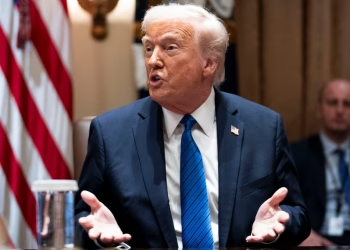A new report urges the adoption of energy-efficient, environmentally friendly, and economically viable cooling solutions to reduce emissions.
The report, titled “Cooler Finance: Mobilising Investment for the Developing World’s Sustainable Cooling Needs,” highlights that developing economies are projected to double their cooling demand by 2050. Currently, these nations account for two-thirds of global cooling-related emissions, driven by population growth, economic development, and urbanization.
In 2023, the Kenyan government launched a five-year initiative to lower greenhouse gas emissions from refrigeration by improving access to sustainable cooling options. The National Cooling Action Plan for 2023–27 was presented by Environment and Climate PS Festus Ng’eno at a Nairobi hotel, positioning the country toward a “green, cool revolution.”
Released on September 25 by the UN Environment Programme-led Cool Coalition and the International Finance Corporation, the report indicates that Africa is expected to experience the fastest growth in cooling demand.
UNEP Executive Director Inger Andersen emphasized the importance of sustainable cooling amid rising global temperatures, stating, “Meeting cooling demands should not contribute to further heating the planet.” The report stresses the need for affordable, energy-efficient cooling solutions that align with climate goals, health, food security, and economic development.
It encourages governments, businesses, and multilateral banks to leverage various financial instruments for sustainable cooling and resilience to extreme heat. The report advocates prioritizing passive, energy-efficient, and environmentally friendly cooling strategies, such as insulation, reflective materials, and energy-efficient technologies.
To enforce these solutions, the report calls for new building energy codes, minimum energy performance standards, and a quicker phase-out of climate-harming refrigerants. It also emphasizes a systems approach to cold chains and large cooling infrastructure, along with incentives to foster innovation.
IFC Managing Director Makhtar Diop noted that the sustainable cooling market presents a $600 billion opportunity for the private sector, potentially yielding over $8 trillion in benefits for developing countries. “These nations are particularly vulnerable to rising temperatures and urgently need effective cooling solutions,” Diop added.
The transition to sustainable cooling requires a supportive environment to attract investors, with potential to cut cooling-related emissions by nearly half in developing countries by 2050. The cooling market in these regions is expected to grow from approximately $300 billion to at least $600 billion annually by 2050.
To address current shortfalls in access to cooling for households and SMEs, an additional investment of $400-800 billion will be necessary, alongside rising demand. Key recommendations include enhancing data on cooling costs and financing, raising awareness, and promoting best practice business models.
The report also calls for increased seed funding for pilot technologies, leveraging blended finance, and building on the Global Cooling Pledge to establish a Sustainable Cooling Finance Partnership. UNEP and IFC are collaborating with governments and businesses to de-risk investments and ensure accessible sustainable cooling solutions, particularly for low-income regions vulnerable to frequent heatwaves.
















